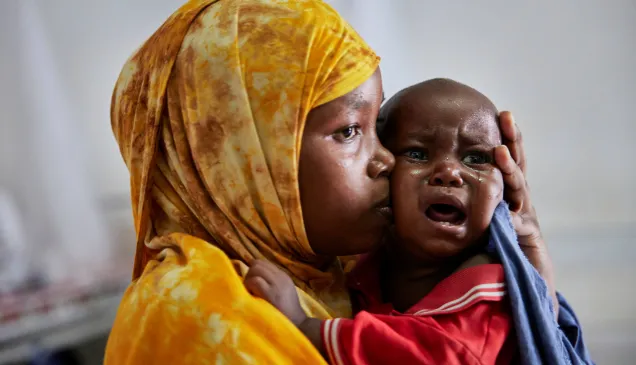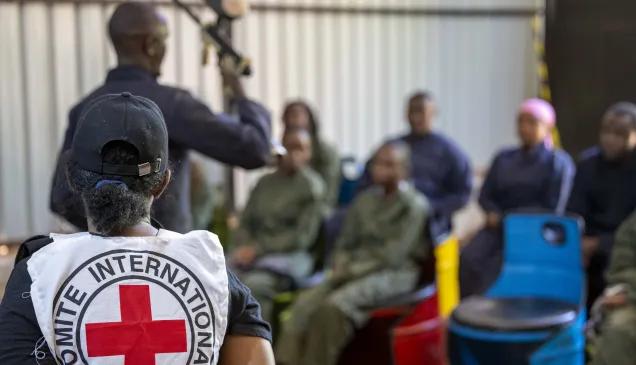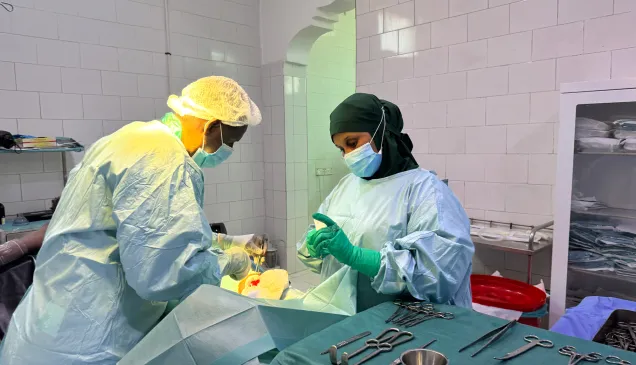Somalia: Encouraged by colleagues, a woman heads Mogadishu rehab centre
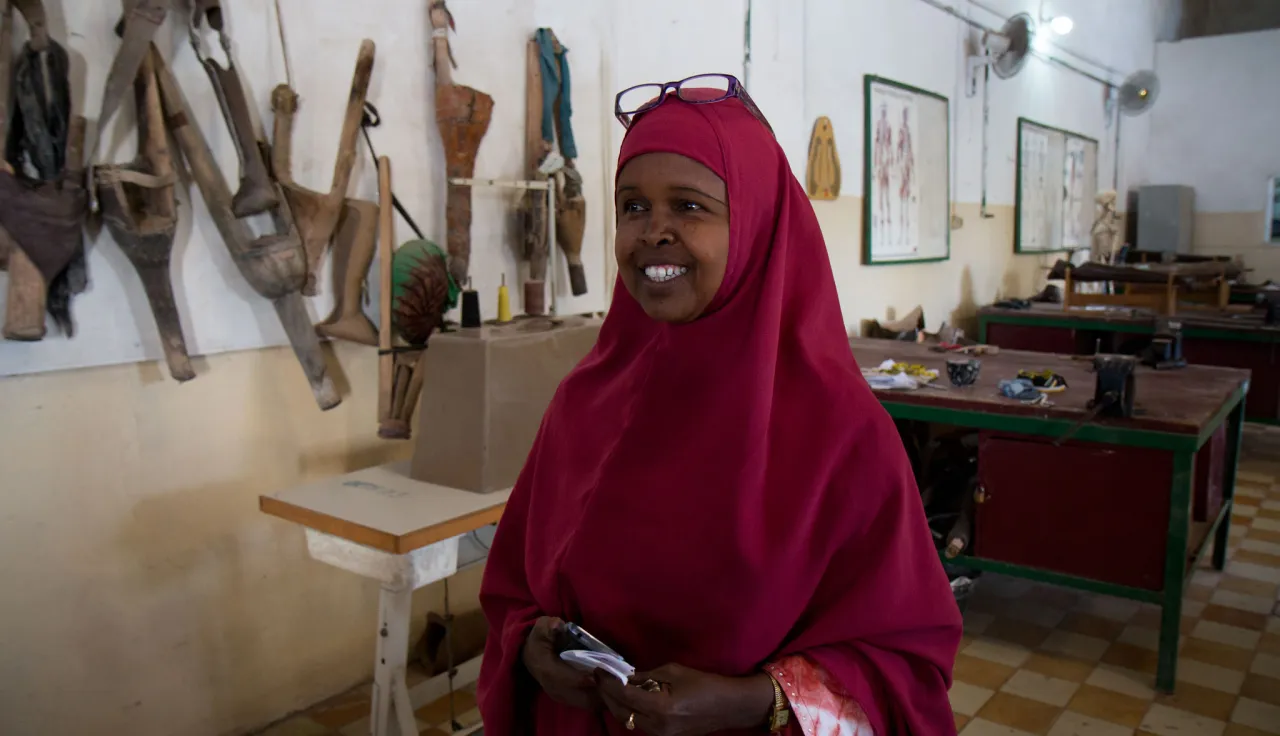
As a woman in Somalia, Halima Abdulle is well aware that leadership roles in her country have traditionally been reserved for men. But this reality didn't stop her from rising to the top of her field.
Soft spoken with an easy demeanor, Halima is a registered nurse, a physiotherapist and the director of the Somali Red Crescent Rehabilitation Centre, a facility in Mogadishu that helps patients learn to use new prosthetic arms or legs.
Halima worked at the rehabilitation centre for 27 years before being named director in March 2016. She remembers telling colleagues that maybe a male should be in charge, but she said that her co-workers, mostly men, told her she could do it.
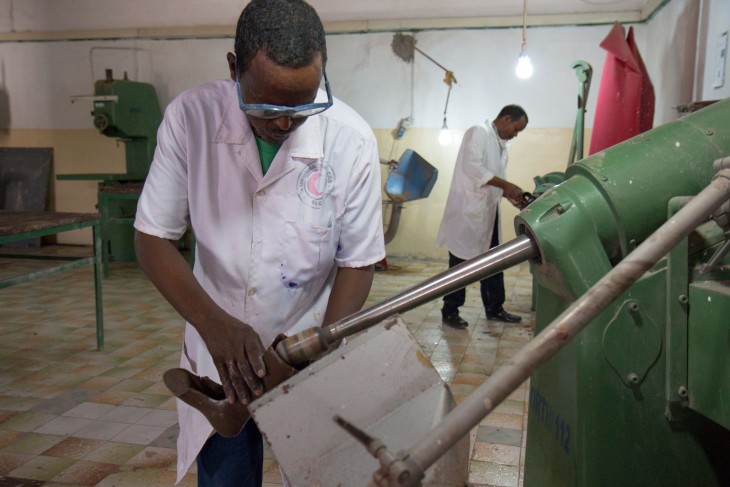
The Somali Red Crescent Rehabilitation Centre, a facility in Mogadishu that makes and helps patients learn to use orthopedic braces and, new prosthetic arms or legs. Mari A. Mørtvedt / Norwegian Red Cross
"In Somalia we don't traditionally have females in high positions, but we are trying to push and change things," Halima said, adding later: "l was both excited and afraid at the beginning, but slowly l have gained confidence, and l am up to the task."
Since joining the rehabilitation centre in the 1980s, she has seen a wave of change in the types of diseases and injuries that residents have been exposed to. The centre opened in 1982, about a decade before the country's long civil war began.
"Before the civil war, we used to have patients mostly from traffic accidents and diseases like Polio. But today, they have injuries from shelling or bullets," said Halima, the 51-year-old mother of two. "Patients arrive here in wheelchairs or carried by relatives."
What has kept Halima, in the same centre for nearly three decades? The determination and effort put in by her disabled patients, she says. Many of them have lost limbs and must begin using prosthetics for the first time.
"When they realize that they can use crutches and do things on their own without being dependent, it brings a lot of happiness to them," she said. "After they are fitted with the prosthetics or orthotics, they realize they can do more in life. They begin to go to the market and some can even drive cars."
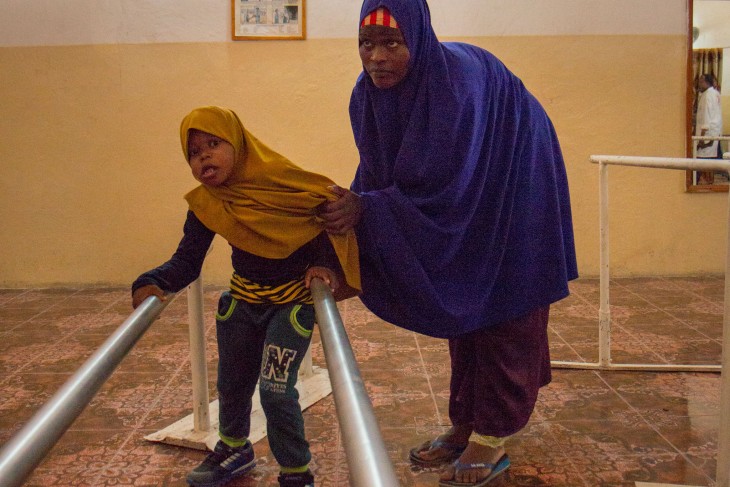
Nasra Ali (5) suffered an epileptic seizure resulting in brain damage at the end of 2016 and is now walking for the first time. For more than 30 years, the SRCS rehabilitation centre in Mogadishu has provided patients with physical therapy. Mari A. Mørtvedt / Norwegian Red Cross
The centre, which is supported by the Norwegian Red Cross, makes prosthetic arms and legs as well as orthopedic braces. Last year nearly 4,500 patients took advantage of the centre's services, including 3-year-old Mohamed.
"You're becoming strong, good, keep it up," Halima told the child during a recent round of visits with patients. She lifted the boy's trousers and massaged his knee for a minute before flashing a smile and moving on to the next patient.
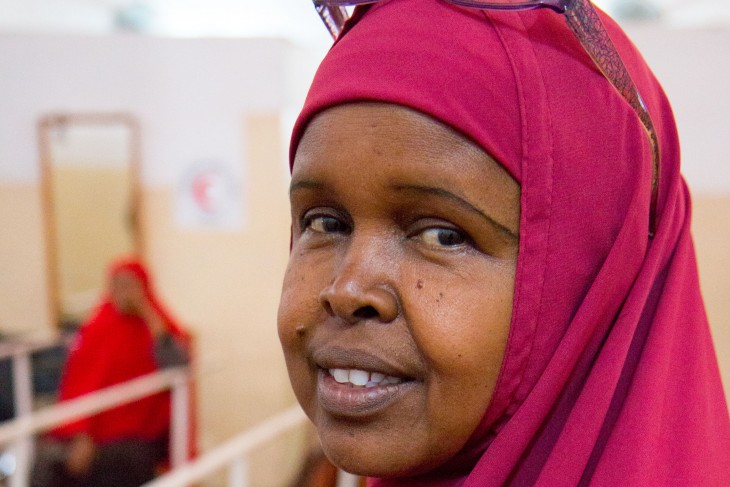
Halima Mohamed Abdulle is a registered nurse, a physiotherapist and the director of the SRCS rehabilitation centre in Mogadishu. She has worked at the centre since 1986. Mari A. Mørtvedt / Norwegian Red Cross

